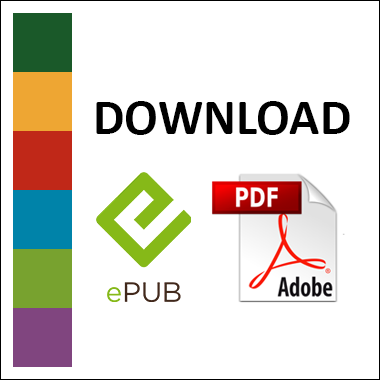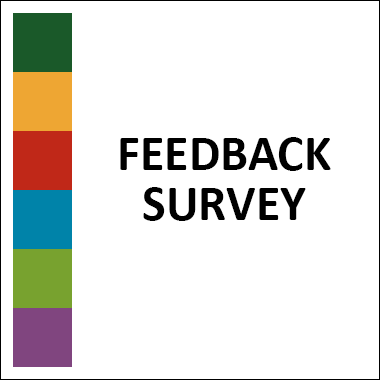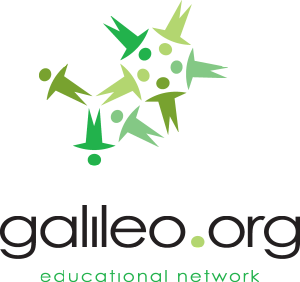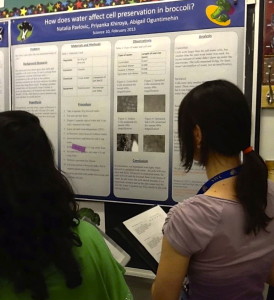 There’s a big difference between merely knowing about something, and gaining a deep understanding of how math, science and other disciplines live in the world . Students need to take part in the process of creating. Building knowledge involves a continual process of extending, sharing and improving upon what is already known . Experts in a field of study are always pushing these boundaries, leading to new ideas and inventions that can change lives. This spirit of inquiry can also take place in schools where students are willing and capable to take on the challenges of the outside world. As students develop knowledge-building competencies, they come to see themselves and their work as part of the effort to advance the frontiers of what we know as a society, and indeed contribute in a meaningful way to the body of work within a discipline.
There’s a big difference between merely knowing about something, and gaining a deep understanding of how math, science and other disciplines live in the world . Students need to take part in the process of creating. Building knowledge involves a continual process of extending, sharing and improving upon what is already known . Experts in a field of study are always pushing these boundaries, leading to new ideas and inventions that can change lives. This spirit of inquiry can also take place in schools where students are willing and capable to take on the challenges of the outside world. As students develop knowledge-building competencies, they come to see themselves and their work as part of the effort to advance the frontiers of what we know as a society, and indeed contribute in a meaningful way to the body of work within a discipline.
Indeed, there are substantial similarities between deep, authentic learning and the processes by which knowledge advances in the disciplines. Strongly crafted discipline-based inquiry work prepares students to build knowledge and understand the world .
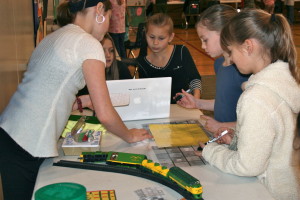
Knowledge is thin or superficial when it does not deal with significant concepts of a topic or discipline – for example, when students have a trivial understanding of important concepts or when they have only a surface acquaintance with their meaning. Superficiality can be due, in part, to instructional strategies that emphasize coverage of large quantities of fragmented information.
Knowledge is deep when it concerns the central ideas of a topic or discipline. For students, knowledge is deep when they make clear distinctions, develop arguments, solve problems, construct explanations, and otherwise work with relatively complex understandings. Depth is produced in part, by covering fewer topics in systemic and connected ways .
Knowledge Building Principles and Indicators
| Principle | Standard Best Practice | Knowledge Building Value Added |
|---|---|---|
| Community Knowledge, Collective Responsibility | Participants collaborate on the production of a finished product that demonstrates individual or small-group learning | Participants take responsibility for the overall advancement of knowledge in the community. |
| Constructive Uses of Authoritative Sources | Participants critically evaluate information sources and recognize that even the best are fallible | Participants use authoritative sources, along with other information sources as data for their own knowledge building and idea-improving processes. |
| Embedded, and Transformative Assessment | Externally defined assessment is taken seriously but does not dominate knowledge work | The community engages in its own internal assessment, which is both more fine-tuned and rigorous than external assessment, and serves to ensure that the community’s work will exceed the expectations of external assessors. |
| Democratizing Knowledge | Everyone’s work is recognized and praised; participants help each other find needed information. | All participants are legitimate contributors to the shared goals of the community; all have a sense of ownership of knowledge advances achieved by the group. |
| Epistemic Agency | Participants demonstrate a personal sense of direction, power, motivation, and responsibility. | Participants mobilize personal strengths to set forth their ideas and to negotiate a fit between personal ideas and ideas of others, using contrasts to spark and sustain knowledge advancement rather than depending on others to chart that course for them. |
| Idea Diversity | Different ideas or opinions are brainstormed, and then grouped into categories, and finally arguments are carried out to resolve differences. | Different ideas create a dynamic environment in which contrasts, competition, and complementarity of ideas is evident, creating a rich environment for ideas to evolve into new and more refined forms. |
| Improvable Ideas | Ideas are accepted or rejected on the basis of logical argument and evidence. | All ideas are treated as improvable; participants aim to mirror the work of great thinkers in gathering and weighing evidence, and ensuring that explanations cohere with all available evidence. |
| Pervasive Knowledge Building | Special time is set aside for creative work with ideas, usually after the basic work is done; special technologies and supports encourage creative work | Creative work with ideas is integral to all knowledge work. |
| Real Ideas, Authentic Problems | Project-based learning replaces short-term tasks with more complex, ill-defined tasks. | Real knowledge problems arise from efforts to understand the world; creative work with ideas supports faster and more reliable learning, whereas learning alone seldom leads to knowledge innovation. |
| Rise Above | Teacher or leader takes responsibility for synthesizing diverse ideas, identifying common ground, and presenting new challenges. | The conditions to which people adapt change as a result of the successes of other people in the environment. Adapting means adapting to a progressive set of conditions that keep raising standards. |
| Knowledge Building Discourse | Discourse allows participants to express and gain feedback on their ideas, defend different points of view, arrive at conclusions. | Discourse serves to identify shared problems and gaps in understanding and to advance understanding beyond the level of the most knowledgeable individual. |
| Symmetric Knowledge Advancement | Groups carry out inquiries independently and then publicize their findings for the benefit and response of other groups | Interleaved communities provide successively more demanding contexts for knowledge work, and set into motion inner-outer community dynamics that serve to embed ideas in a broader social context. |
